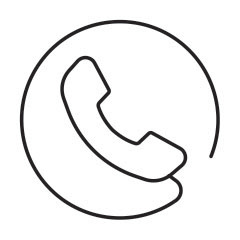Our Health Library information does not replace the advice of a doctor. Please be advised that this information is made available to assist our patients to learn more about their health. Our providers may not see and/or treat all topics found herein.
Topic Contents
Breastfeeding: Sore Nipples
Overview
Pain during breastfeeding is a sign of a problem and should not be ignored. Although sore or tender nipples are common during the first few days of breastfeeding, it should improve. Normal soreness or pain usually occurs for about a minute when the baby first latches on to the breast.
For minor discomfort, you can try home treatment. But pain that's severe or ongoing or that occurs again after it seemed to go away needs to be checked by your doctor or a lactation consultant.
What causes sore nipples with breastfeeding?
Many things can cause sore, cracked, bleeding, or bruised nipples. Causes include:
- Not having your baby in a good position during breastfeeding.
- Problems with latching on.
- A poor let-down reflex.
- Inverted nipples.
- Infection.
- Biting during feeding.
- Skin problems, such as eczema.
Sore nipples and breasts may also happen if:
- Your baby's mouth gets pulled away from the breast without first breaking the suction.
- Your baby falls asleep at the breast and is sucking for comfort without having a proper latch on the breast.
- Your baby has a short frenulum. The frenulum connects the tongue to the bottom of the mouth. This problem is also called tongue-tie.
How can you care for yourself?
If you have sore nipples, talk with a lactation consultant or your doctor or midwife. They can check for problems, such as a short frenulum or poor latching. And they can offer tips on breastfeeding and caring for your breasts. And call them if you've tried home treatment for 24 hours and it doesn't help.
If your nipples are cracked or bleeding, it's okay to keep breastfeeding your baby.
- After each feeding, apply an antibiotic ointment and a nonstick first-aid pad.
- Gently wipe off the ointment before the next feeding.
Here are some general tips to help with sore nipples.
- Allow some breast milk to dry on your nipples. Breast milk contains natural skin softeners and antibodies to fight infection. This can help heal nipples and keep them healthy.
- Let your nipples air-dry after each feeding. This prevents clothing from sticking to the breast. Moisten the nipple to help detach stuck clothing.
- Place breast shields inside your bra. They can help keep clothing from rubbing your nipples.
- Some people try using a nipple ointment or cream made with purified lanolin, such as Lansinoh or Tender Care.
- To reduce pain, apply cool compresses to your nipples after breastfeeding. Gel pads can also be used on dry nipples.
- Wear a supportive bra. Breastfeeding bras open at each cup to allow breastfeeding and to allow nipples to air-dry. If it's comfortable, wear a bra at night for extra support.
It can also be helpful to avoid:
- Breastfeeding pads that have plastic liners.
- Most general-purpose lotions and creams.
- Washing your nipples with soap. Soap can dry out your nipples.
How can you help prevent sore nipples?
These tips can help you prevent problems with your nipples.
- Make sure that your baby is latching on correctly. And be sure to break the latch before removing your baby from your breast. You can do this by placing your pinky finger into the corner of your baby's mouth. This will gently break the suction.
- To minimize discomfort, start breastfeeding on the side that is less sore for the first few minutes, then switch to the other side. The baby's sucking is usually strongest during the first few minutes of breastfeeding.
- Express a little milk from your breasts right before a feeding. This can help with the let-down reflex and soften nipples so that the baby can easily and gently latch on.
- Change your baby's position with each feeding. This changes the pressure from the baby's mouth to a different part of the breast.
- If your doctor or midwife says it's okay, take acetaminophen (such as Tylenol) about 30 minutes before breastfeeding.
When should you call for help?

Call your doctor now or seek immediate medical care if:
- You have signs of infection, such as:
- Increased pain, swelling, warmth, or redness.
- Red streaks leading from the area.
- Pus draining from the area.
- A fever.
- A hard area in your breast, and you cannot empty your breast.
- You have swollen glands (lymph nodes) in your neck or armpit.
- You have pain that is severe or ongoing or that goes away and then comes back.
- You find it too painful to breastfeed.
- You've tried home treatment for 24 hours and are not getting better as expected.
Related Information
Credits
Current as of: July 15, 2025
Author: Ignite Healthwise, LLC Staff
Clinical Review Board
All Ignite Healthwise, LLC education is reviewed by a team that includes physicians, nurses, advanced practitioners, registered dieticians, and other healthcare professionals.
Current as of: July 15, 2025
Author: Ignite Healthwise, LLC Staff
Clinical Review Board
All Ignite Healthwise, LLC education is reviewed by a team that includes physicians, nurses, advanced practitioners, registered dieticians, and other healthcare professionals.
This information does not replace the advice of a doctor. Ignite Healthwise, LLC disclaims any warranty or liability for your use of this information. Your use of this information means that you agree to the Terms of Use and Privacy Policy. Learn how we develop our content.
To learn more about Ignite Healthwise, LLC, visit webmdignite.com.
© 2024-2025 Ignite Healthwise, LLC.




